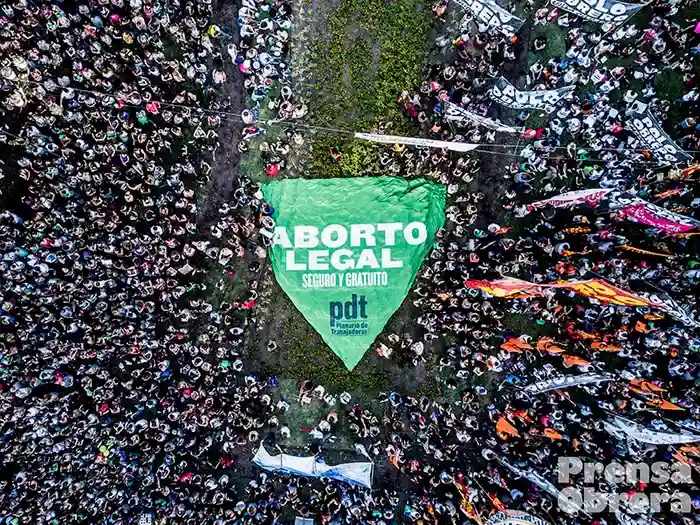A group of six deputies from the ruling party in Argentina has introduced a bill that aims to repeal the abortion law that was enacted in 2020, sparking a new controversy in the country after the failing of the “Omnibus” reform bill.

A bill to repeal the abortion law that was passed by Congress in late 2020 has been introduced by six deputies from the ruling party in Argentina, following their recent setback in the general reforms bill. The bill, led by Oscar Zago, the head of the La Libertad Avanza (LLA) bloc, and co-signed by Lilia Lemoine and four other legislators, labels abortion as a “crime.”
The bill does not recognize the exception of rape as a non-punishable cause for abortion, unlike the Penal Code of 1921 that was amended with the legalization of abortion. The bill states that the judge may decide to exempt the woman from the sentence based on her motives, behavior, and the nature of the act.
The legislators argued that they decided to remove the non-punishability clause for abortions resulting from rape because they believe that it has been used as a pretext for the practice.
The bill is controversial and revives the debate that took place during the presidency of Mauricio Macri, when the lower house approved the legalization of abortion but the Senate rejected it. The abortion law was finally enacted during the term of Alberto Fernández.
The LLA deputies claimed: “The severe crisis that our country is facing is not only political or economic, but mainly moral. The political class must restore the concept of “common good” as the basis of the principle of hierarchy. This way, a legitimacy that is challenged today can be regained, and that will only be restored if the institutional, material and spiritual conditions are provided that allow the normal and full development of all the Argentines.”
The legislators also criticized the distinction that the new law makes between the first fourteen weeks of pregnancy and the rest: “In fact, before the fourteen weeks are completed, the life of the unborn is not a legal good that deserves the protection of the law, a situation that changes after that term. That is why we propose to go back to the previous wording of the article, changing the issue of the non-punishment causes,” the legislators emphasized.
The bill, authored by Rocío Belén Bonacci, legislator for the province of Santa Fe, and also signed by Beltrán Benedit, María Fernanda Araujo and Manuel Quintar, sets almost the same penalties as the Penal Code of 1921.
“Whoever causes an abortion will be punished with imprisonment or imprisonment of three to ten years, if he acts without the woman’s consent. This penalty may be increased to 15 years, if the event is followed by the death of the woman,” the bill suggests.
It also establishes penalties of “confinement or prison of one to four years, if acting with the consent of the woman; The maximum sentence will be raised to six six years, if the event is followed by the death of the woman.”
These penalties are identical to those established in the law before abortion, even the wording is exactly the same. However, there is a minor penalty in the new regulations: they go down from the four years that existed before 2020 to three years of maximum penalty for “the woman who causes her own abortion or consents to someone else causing it.” The woman’s attempt, according to the bill, is not punishable.







